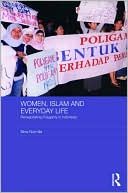Category Books
- Fiction Books & Literature
- Graphic Novels
- Horror
- Mystery & Crime
- Poetry
- Romance Books
- Science Fiction & Fantasy
- Thrillers
- Westerns
- Ages 0-2
- Ages 3-5
- Ages 6-8
- Ages 9-12
- Teens
- Children's Books
- African Americans
- Antiques & Collectibles
- Art, Architecture & Photography
- Bibles & Bible Studies
- Biography
- Business Books
- Christianity
- Computer Books & Technology Books
- Cookbooks, Food & Wine
- Crafts & Hobbies Books
- Education & Teaching
- Engineering
- Entertainment
- Foreign Languages
- Game Books
- Gay & Lesbian
- Health Books, Diet & Fitness Books
- History
- Home & Garden
- Humor Books
- Judaism & Judaica
- Law
- Medical Books
- New Age & Spirituality
- Nonfiction
- Parenting & Family
- Pets
- Philosophy
- Political Books & Current Events Books
- Psychology & Psychotherapy
- Reference
- Religion Books
- Science & Nature
- Self Improvement
- Sex & Relationships
- Social Sciences
- Sports & Adventure
- Study Guides & Test Prep
- Travel
- True Crime
- Weddings
- Women's Studies
Women, Islam and Everyday Life: Renegotiating Polygamy in Indonesia »

Authors: Nina Nurmila
ISBN-13: 9780415468022, ISBN-10: 0415468027
Format: Hardcover
Publisher: Taylor & Francis, Inc.
Date Published: June 2009
Edition: (Non-applicable)
Author Biography: Nina Nurmila
Nina Nurmila is a lecturer at the Faculty of Islamic Education and Teaching, the State Islamic University (UIN) Bandung, Indonesia. She is currently a Fulbright Visiting Professor of Islamic Studies at the University of Redlands, USA. She was previously an Endeavour Postdoctoral Fellow at the University of Technology, Sydney, Australia. Her research interest is Gender and Islam in Muslim Societies, especially Indonesia.
Book Synopsis
This book examines Islam and women’s everyday life, focusing in particular on the highly controversial issue of polygamy. It discusses the competing interpretations of the Qur’anic verses that are at the heart of Muslim controversies over polygamy, with some groups believing that Islam enshrines polygamy as a male right, others seeing it as permitted but discouraged in favour of monogamy, and other groups arguing that Islam implicitly prohibits polygamy. Based on detailed fieldwork conducted in Indonesia, it provides an empirically-based account of women’s lived experiences in polygamous marriages, describing the different perceptions of the practice and strategies in dealing with it. It also considers the impact of changing public policy, in particular Indonesia’s 1974 Marriage Law which restricted the practice of polygamy. It shows that, in fact, this law has not resulted in widespread adherence, and considers how public policy could be modified to increase its effectiveness in affecting behaviour in everyday life. Overall, the book argues that polygamy has been a source of injustice towards women and children, that this is against Islamic teaching, and that a just Islamic law would need to call for the abolition of polygamy.
Table of Contents
List of illustrations xi
Series editor's foreword xii
Acknowledgments xiii
Glossary xvii
1 Introduction 1
Muslim feminist as researcher 11
Brief outline of chapters 19
2 Polygamy in context: family and kinship 21
Women's situation in Java 22
Changing patterns of marriage and family structure in Indonesia 28
Feminist critiques of the family 33
Conclusion 37
3 Muslim discourses on polygamy in Indonesia 39
What is shari'a? 40
Muslim interpretations of polygamy 42
The history of the 1974 Marriage Law 45
The New Order government regulations on marriage and divorce for civil servants 58
The promotion of polygamy in the post-Soeharto period 64
Conclusion 77
4 Reactions to and negotiation around polygamous marriages 78
Accommodating polygamy (the Textualists) 81
Resisting polygamy (the Semi-textualists) 92
Rejecting polygamy (the Contextualists) 103
Varying degrees of women's acceptance of and resistance to polygamy 108
5 Polygamous households 115
Relationship between wives in polygamous marriages 116
Polygamous husbands' treatments of their wives 120
The celebration of important days 131
Attending wedding ceremonies and official parties 132
Economic management in polygamous households 133
The influence of polygamy on children's emotional and economic well-being 138
A bargain with patriarchy and settling for polygamy 143
5 Conclusion 146
Qur'an is divine, while its interpretation is human 146
The need for a contextual approach in reading the Qur'an 148
Notes 155
References 174
Index 195
Subjects
 Islam
Islam  Women in Islam
Women in IslamChristianity
 All Religion
All Religion  Islam
IslamNonfiction
 Social Sciences
Social Sciences  Islamic Studies
Islamic StudiesReligion Books
 Islam
Islam  Women in Islam
Women in IslamReligion Books
 All Religion
All Religion  Islam
IslamScience & Nature
 Social Sciences
Social Sciences  Islamic Studies
Islamic StudiesSocial Sciences
 Islamic Studies
Islamic Studies  Women in Islam
Women in IslamSocial Sciences
 Women's Studies
Women's Studies  Women's Studies
Women's StudiesWomen's Studies
 Women's Studies
Women's Studies  Women in Islam
Women in IslamChristianity
 Christianity
Christianity  Islam
IslamChristianity
 Christianity
Christianity  All Religion
All ReligionNonfiction
 Religion
Religion  Islam
IslamNonfiction
 Religion
Religion  All Religion
All ReligionReligion Books
 Christianity
Christianity  Islam
IslamReligion Books
 Christianity
Christianity  All Religion
All Religion
